Filter by
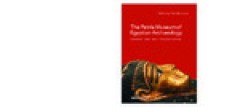
The Petrie Museum of Egyptian Archaeology: Characters and Collections
The Petrie Museum of Egyptian Archaeology first opened its doors in 1915, and since then has attracted visitors from all over the world as well as providing valuable teaching resources. Named after its founder, the pioneering archaeologist Flinders Petrie, the Museum holds more than 80,000 objects and is one of the largest and finest collections of Egyptian and Sudanese archaeology in the worl…
- Edition
- -
- ISBN/ISSN
- 9781910634042
- Collation
- 120 p.
- Series Title
- -
- Call Number
- 932.00744213 STE p
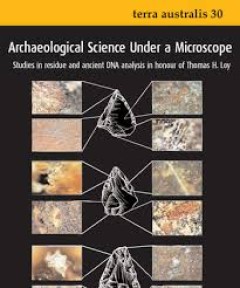
TA 30 - Archaeological Science Under a Microscope
These highly varied studies, spanning the world, demonstrate how much modern analyses of microscopic traces on artifacts are altering our perceptions of the past. Ranging from early humans to modern kings, from ancient Australian spears or Mayan pots to recent Maori cloaks, the contributions demonstrate how starches, raphides, hair, blood, feathers, resin and DNA have become essential elements …
- Edition
- -
- ISBN/ISSN
- 9781921536854
- Collation
- -
- Series Title
- -
- Call Number
- 931 NUG t
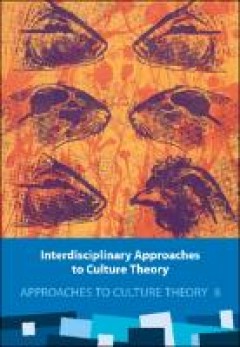
Interdisciplinary Approaches to Culture Theory
The central theme of the volume is interdisciplinary experimentation. The volume includes collaborative and interdisciplinary studies on a variety of topics, from territorialisation of theory, relations between culture theory and research methodology, culture-dependent meaning formation, power relations in discourses on religion, communal heritage management, celebration practices of (national)…
- Edition
- -
- ISBN/ISSN
- 9789949033041
- Collation
- -
- Series Title
- -
- Call Number
- 930.1 INT i
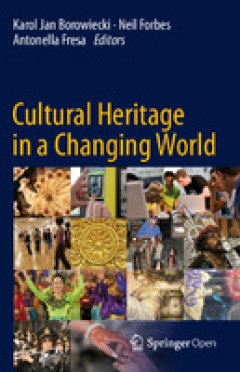
Cultural heritage in a changing world
- Edition
- -
- ISBN/ISSN
- 9783319295442
- Collation
- XVII, 322 p.
- Series Title
- -
- Call Number
- 363.69 JAN j
- Edition
- -
- ISBN/ISSN
- 9783319295442
- Collation
- XVII, 322 p.
- Series Title
- -
- Call Number
- 363.69 JAN j
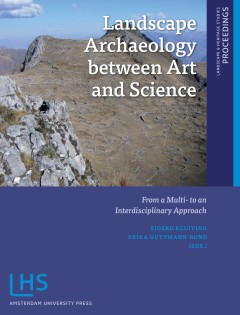
Landscape archaeology between art and science : from a multi- to an interdisc…
Researchers in landscape archaeology use two different definitions of landscape. One definition (landscape as territory) is used by the processual archaeologists, earth scientists, and most historical geographers within this volume. By contrast, post-processual archaeologists, new cultural geographers and anthropologists favour a more abstract definition of landscape, based on how it is perceiv…
- Edition
- -
- ISBN/ISSN
- 9789089644183
- Collation
- 525p. : ill.
- Series Title
- -
- Call Number
- 930.1028 LAN l
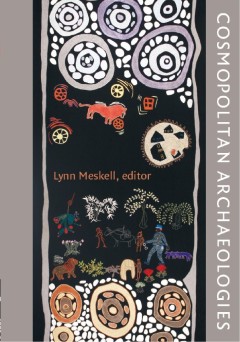
Cosmopolitan archaeologies
This book delves into the politics of contemporary archaeology in an increasingly complex international environment. Describing various forms of cosmopolitan engagement, the contributors explore the implications of applying the cosmopolitan ideals of obligation to others and respect for cultural difference to archaeological practice, showing that those ethics increasingly demand the rethinking …
- Edition
- -
- ISBN/ISSN
- 9780822344322
- Collation
- 296p. : ill.
- Series Title
- -
- Call Number
- 930.1 COS c
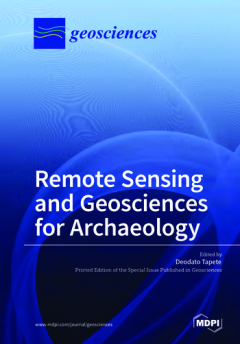
Remote sensing and geosciences for archaeology
This book collects more than 20 papers, written by renowned experts and scientists from across the globe, that showcase the state-of-the-art and forefront research in archaeological remote sensing and the use of geoscientific techniques to investigate archaeological records and cultural heritage.Very high resolution satellite images from optical and radar space-borne sensors, airborne multi-spe…
- Edition
- -
- ISBN/ISSN
- 9783038427643
- Collation
- IX, 433 p.
- Series Title
- -
- Call Number
- 930.1 REM r
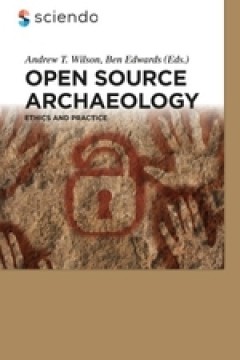
Open source archaeology : ethics and practice
This edited volume is designed to discuss important issues around open access to data and software in academic and commercial archaeology, as well as to summarise both the current state of theoretical engagement, and technological development in the field of open-archaeology.
- Edition
- -
- ISBN/ISSN
- 9783110440171
- Collation
- 160 p.
- Series Title
- -
- Call Number
- 930.1 OPE p
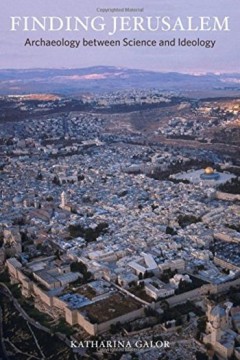
Finding Jerusalem : archaeology between science and ideology
Archaeological discoveries in Jerusalem capture worldwide attention in various media outlets. The continuing quest to discover the city’s physical remains is not simply an attempt to define Israel’s past or determine its historical legacy. In the context of the ongoing Israeli-Palestinian conflict, it is also an attempt to legitimate—or undercut—national claims to sovereignty. Bridging …
- Edition
- -
- ISBN/ISSN
- 9780520968073
- Collation
- xxi, 248p. : ill.
- Series Title
- -
- Call Number
- 933.442 GAL f
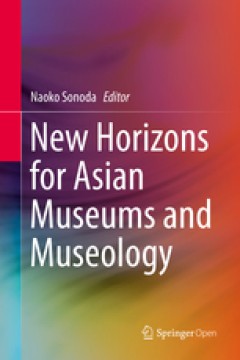
New horizons for Asian museums and museology
This book presents up-to-date information about museums and museology in present-day Asia, focusing on Japan, Mongolia, Myanmar, and Thailand.Asian countries today have developed or are developing their own museology and museums, which are not simple copies of European or North American models. This book provides readers with carefully chosen examples of museum activities—for example, exhibit…
- Edition
- -
- ISBN/ISSN
- 9789811008863
- Collation
- VI, 204 p.
- Series Title
- -
- Call Number
- 069.095 NEW n
 Computer Science, Information & General Works
Computer Science, Information & General Works  Philosophy & Psychology
Philosophy & Psychology  Religion
Religion  Social Sciences
Social Sciences  Language
Language  Pure Science
Pure Science  Applied Sciences
Applied Sciences  Art & Recreation
Art & Recreation  Literature
Literature  History & Geography
History & Geography